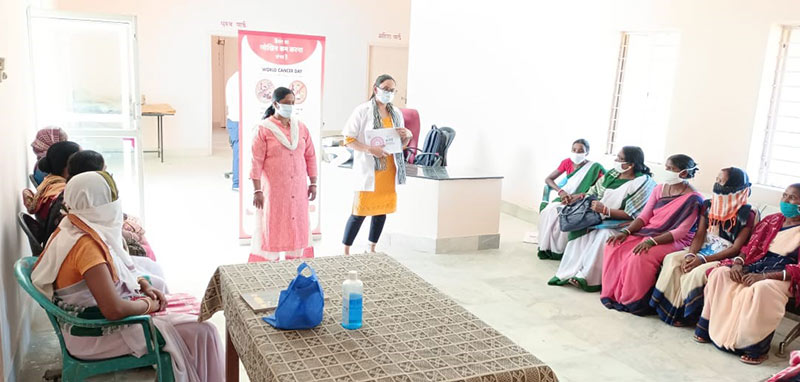Raising awareness about the signs and symptoms of common cancers is essential for promoting early detection of the disease and giving patients a fighting chance at survival
Cancer is a complex disease that can affect various parts of the body. It is important for individuals to be aware of the signs and symptoms of cancer so that they can seek timely medical attention and improve their chances of survival. The symptoms of cancer can vary depending on the affected part or organ of the body, but some general signs experienced by most people in the early stages include unexplained weight loss, constant tiredness, frequent fevers, and even anaemia. If you have been experiencing any of these symptoms for an extended period of time, it is recommended that you seek medical attention.

Warning signs
In addition to the general symptoms of cancer, one must watch out for these seven warning signs. However, it is important to keep in mind that these signs by themselves do not necessarily indicate cancer — just that further medical investigation is required.
- Changes in bowel habits
- Sores that refuse to heal
- Unusual bleeding or discharge
- Lumps on the breast or any other part of the body
- Difficulty in swallowing or digestion
- Any significant change in the appearance of warts, moles, or any other part of the body
- Persistent cough or hoarse voice
Specific symptoms
Apart from the general warning signs mentioned above, each type of cancer also has a specific set of symptoms.
Symptoms of oral cancer
- Persistent discoloration in the oral cavity, typically white or red in colour
- Mouth ulcers that refuse to heal
- Presence of an abnormal growth or lump inside the mouth
- Discomfort or pain in the mouth and ear
- Inability to tolerate spicy foods
- Restricted ability to fully open the mouth
- Discomfort while swallowing
- Abrupt change in vocal quality
Symptoms of breast cancer
- Alterations in skin texture over the breast (swelling, redness, noticeable differences between both breasts)
- Changes in shape and size of the breasts
- Noticeable change in the appearance of the nipple (e.g. inverted nipple)
- Appearance of dimples or indentation on the breast
- Discharge from the nipple (except breast milk)
- Skin over the breast resembling the texture of an orange peel
- Ulcer on the breast that fails to heal
- Lumps or nodules that can be externally felt
- Presence of lumps under the armpit
Symptoms of cervical cancer
- Menstrual flow post menopause
- Bleeding between menstrual cycles
- Abnormally heavy and extended menstrual flow
- Abnormal vaginal bleeding, such as after sexual intercourse or after a pelvic examination
- Abnormal and persistent pain in the pelvic region
- Heavier vaginal discharge
- Vaginal discharge accompanied by a strong odour
- Experiencing pain or discomfort during sexual intercourse
Symptoms of lung cancer
- Persistent, nagging cough
- Changes in breathing patterns or wheezing
- Difficulty in breathing
- Hoarse voice
- Abnormal or unintended weight loss
- Coughing up blood
- Feeling fatigued and low on energy
Symptoms of stomach cancer
- Indigestion or a burning sensation in the chest
- Abdominal pain or discomfort
- Feeling nauseated and vomiting (especially vomiting solid food shortly after a meal)
- Feeling bloated after eating
- Decreased appetite
- Difficulty swallowing food
- Constant tiredness and loss of energy
- Presence of blood in vomit Abnormal or unintended weight loss
- Black-coloured stools
Symptoms of oesophageal cancer
- Difficulty swallowing food
- Burning sensation or pain in the chest
- Problems with digestion accompanied by episodes of vomiting
- Persistent cough or hoarse voice
- Black-coloured stools
- Presence of blood in vomit
- Abnormal or unintended weight loss
